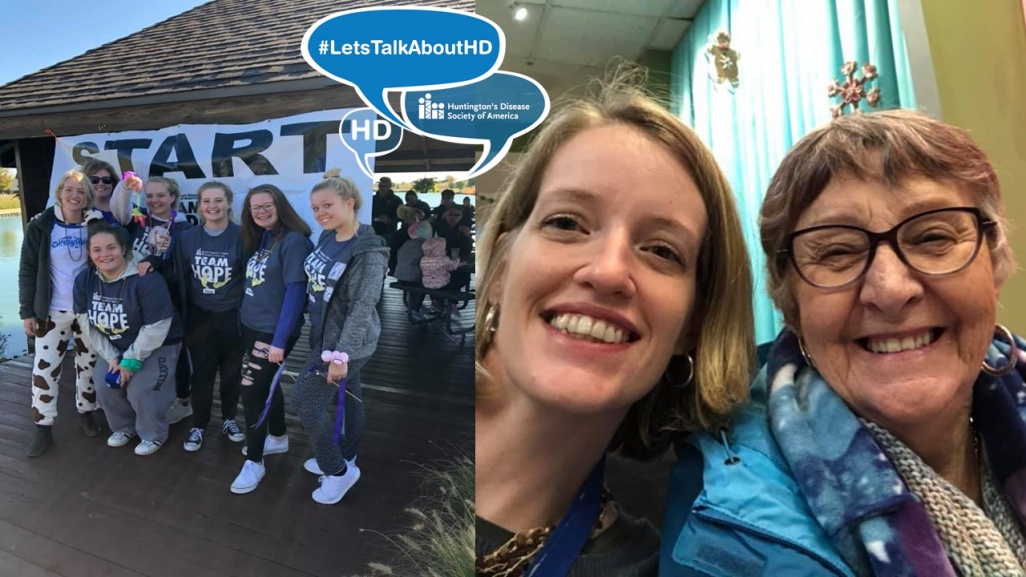
By Matthew Santamaria (msantamaria@hdsa.org)
Cincinnati resident Rebecca Irwin, MSW (Master of Social Work), LSW (Licensed Social Worker) is an Army Veteran. While stationed in Germany, she was reading her emails from home as one of the emails was from her sister.
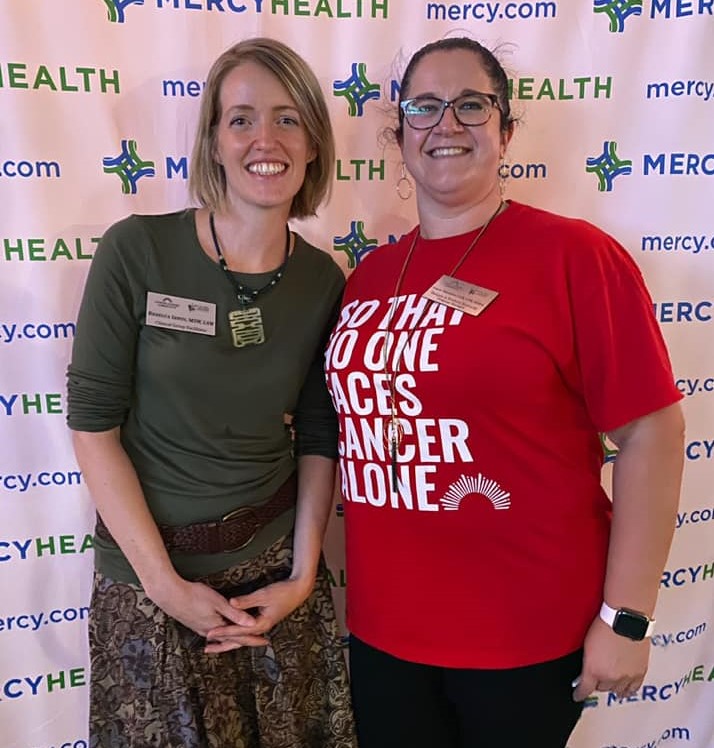
She would read this email and learned that her father has tested positive for the gene that causes Huntington’s disease (HD). This is a fatal genetic disorder that causes the progressive breakdown of nerve cells in the brain. It deteriorates a person’s physical and mental abilities usually during their prime working years and has no cure.
The disease was unknown to the family as Rebecca and her sister learned that they were at risk. Every child of a parent with HD has a 50/50 chance of inheriting the faulty gene that causes HD.
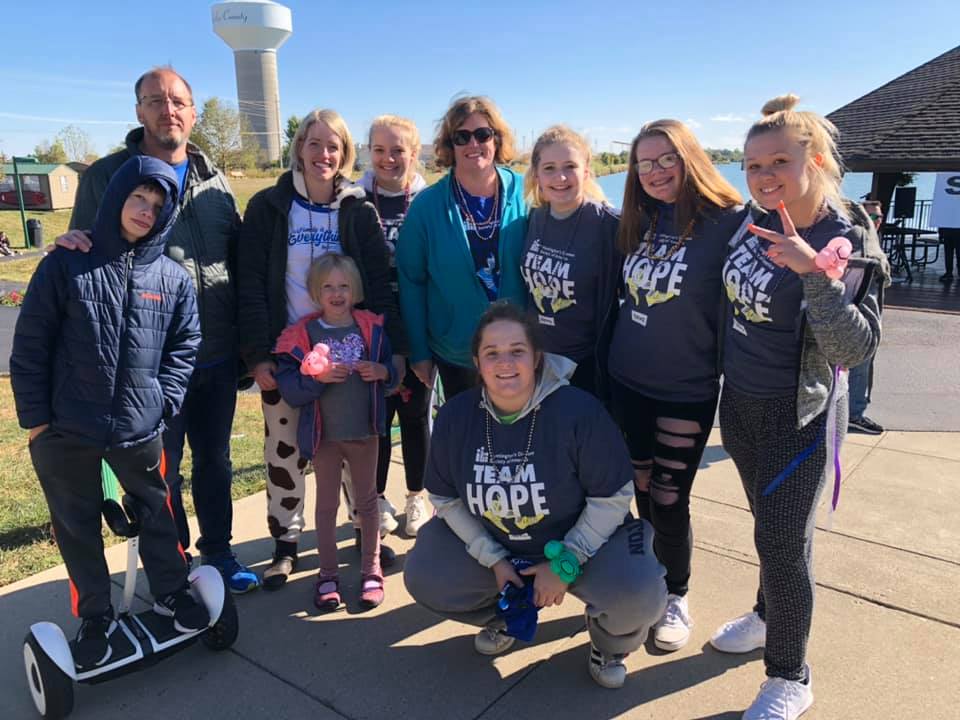
“We hang on the words of scientists for a treatment, for a cure, we are so close, closer than ever,” said Rebecca. “We keep hope alive for future generations, that they will have choices, and options and that same hope for the future.”
HD is described as having ALS, Parkinson’s and Alzheimer’s diseases – simultaneously. Symptoms include personality changes, mood swings, depression, forgetfulness, impaired judgement, unsteady gait, involuntary movements, slurred speech, difficulty in swallowing, and significant weight loss.
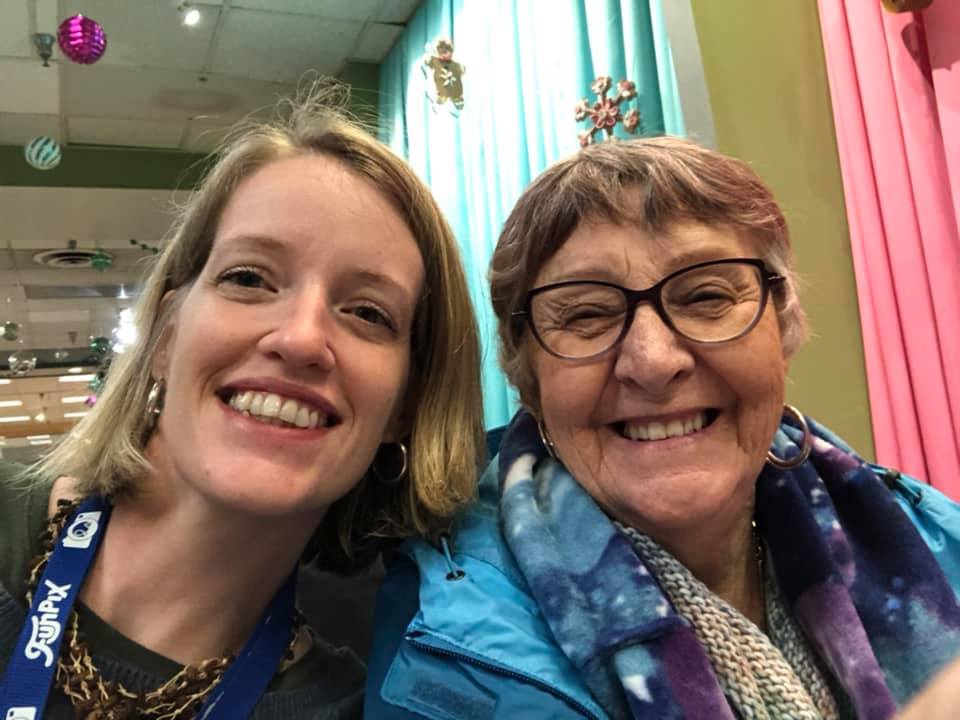
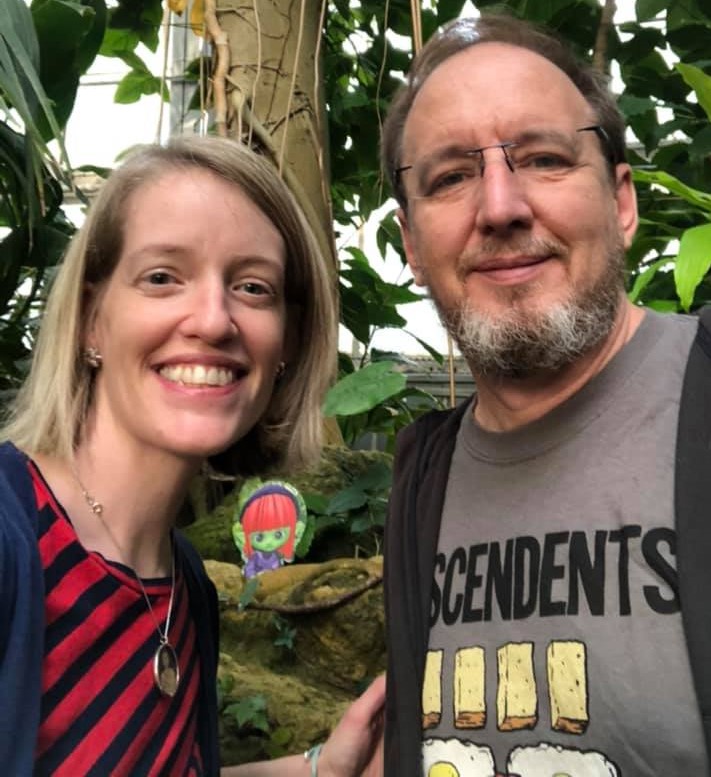
Rebecca decided to get tested for HD.
The decision to get genetically tested is difficult to make. Each year, 5-10% are tested. It is never the right or wrong decision to be tested. There are people that see no benefit in knowing that they will develop the disease while others want to know in order to make informed choices about their future. It can take up to several weeks to receive your results from the genetic testing center.
She would test negative for HD. “So comes a new kind of service to my family,” Rebecca explains.
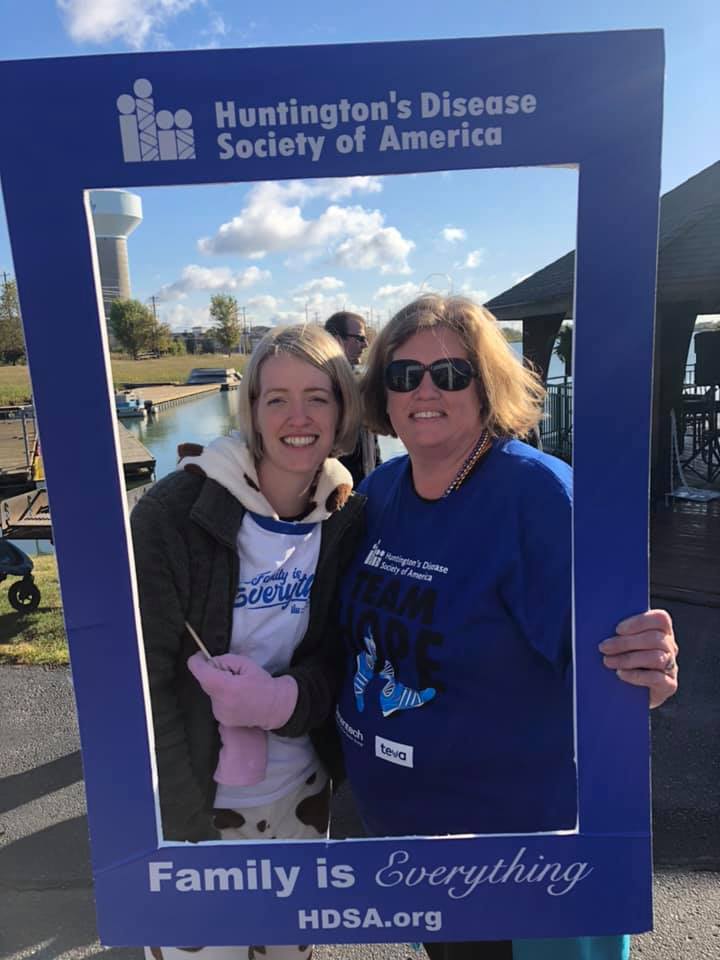
This would lead Rebecca to start a new career as a social worker and became a volunteer for HDSA’s Ohio Valley Chapter. She would become the Co-President for HDSA’s Ohio Valley Chapter.
“Things just seemed to fall into place,” said Rebecca. “We are needed, our local HDSA chapters need us, our families need us. We hold a space for hope, we build community, and we serve our HD family and work to be better each day.”
###
Huntington’s disease is a fatal genetic disorder that causes the progressive breakdown of nerve cells in the brain. It deteriorates a person’s physical and mental abilities usually during their prime working years and has no cure. Every child of a parent with HD has a 50/50 chance of inheriting the faulty gene that causes Huntington’s disease. Today, there are approximately 41,000 symptomatic Americans and 200,000 at-risk of inheriting the disease. In less than 10% of cases, juvenile Huntington’s disease (JHD) affects children & adolescents. JHD usually has a more rapid progression rate than adult onset HD; the earlier the onset, the faster JHD progresses. HD is described as having ALS, Parkinson’s and Alzheimer’s diseases – simultaneously. HD is characterized by a triad of symptoms, including progressive motor dysfunction, behavioral disturbance and cognitive decline.
The Huntington’s Disease Society of America is the premier nonprofit organization dedicated to improving the lives of everyone affected by HD. From community services and education to advocacy and research, HDSA is the world’s leader in providing help for today and hope for tomorrow for people with HD and their families.
To learn more about Huntington’s disease and the work of the Huntington’s Disease Society of America, visit www.HDSA.org or call 1(800)345-HDSA.
This is a story featuring a personal experience with Huntington’s disease. If you would like to have your story told please contact Matthew Santamaria at msantamaria@hdsa.org.
Cincinnati resident Rebecca Irwin, MSW (Master of Social Work), LSW (Licensed Social Worker) is an Army Veteran. While stationed in Germany, she was reading her emails from home as one of the emails was from her sister.

She would read this email and learned that her father has tested positive for the gene that causes Huntington’s disease (HD). This is a fatal genetic disorder that causes the progressive breakdown of nerve cells in the brain. It deteriorates a person’s physical and mental abilities usually during their prime working years and has no cure.
The disease was unknown to the family as Rebecca and her sister learned that they were at risk. Every child of a parent with HD has a 50/50 chance of inheriting the faulty gene that causes HD.

“We hang on the words of scientists for a treatment, for a cure, we are so close, closer than ever,” said Rebecca. “We keep hope alive for future generations, that they will have choices, and options and that same hope for the future.”
HD is described as having ALS, Parkinson’s and Alzheimer’s diseases – simultaneously. Symptoms include personality changes, mood swings, depression, forgetfulness, impaired judgement, unsteady gait, involuntary movements, slurred speech, difficulty in swallowing, and significant weight loss.


Rebecca decided to get tested for HD.
The decision to get genetically tested is difficult to make. Each year, 5-10% are tested. It is never the right or wrong decision to be tested. There are people that see no benefit in knowing that they will develop the disease while others want to know in order to make informed choices about their future. It can take up to several weeks to receive your results from the genetic testing center.
She would test negative for HD. “So comes a new kind of service to my family,” Rebecca explains.

This would lead Rebecca to start a new career as a social worker and became a volunteer for HDSA’s Ohio Valley Chapter. She would become the Co-President for HDSA’s Ohio Valley Chapter.
“Things just seemed to fall into place,” said Rebecca. “We are needed, our local HDSA chapters need us, our families need us. We hold a space for hope, we build community, and we serve our HD family and work to be better each day.”
Rebecca has a message for the HD Community:
“Like COVID-19 that has encroached across our nation, the invisible threat of Huntington’s Disease waits, incubating in silence over years, months and days. Sometimes invisible, sometimes not. Trying to have a sense of normalcy, when nothing is normal, is not new to our HD family. Somehow, we find hope, we find community, and we find each other.”
“Like COVID-19 that has encroached across our nation, the invisible threat of Huntington’s Disease waits, incubating in silence over years, months and days. Sometimes invisible, sometimes not. Trying to have a sense of normalcy, when nothing is normal, is not new to our HD family. Somehow, we find hope, we find community, and we find each other.”
###
Huntington’s disease is a fatal genetic disorder that causes the progressive breakdown of nerve cells in the brain. It deteriorates a person’s physical and mental abilities usually during their prime working years and has no cure. Every child of a parent with HD has a 50/50 chance of inheriting the faulty gene that causes Huntington’s disease. Today, there are approximately 41,000 symptomatic Americans and 200,000 at-risk of inheriting the disease. In less than 10% of cases, juvenile Huntington’s disease (JHD) affects children & adolescents. JHD usually has a more rapid progression rate than adult onset HD; the earlier the onset, the faster JHD progresses. HD is described as having ALS, Parkinson’s and Alzheimer’s diseases – simultaneously. HD is characterized by a triad of symptoms, including progressive motor dysfunction, behavioral disturbance and cognitive decline.
The Huntington’s Disease Society of America is the premier nonprofit organization dedicated to improving the lives of everyone affected by HD. From community services and education to advocacy and research, HDSA is the world’s leader in providing help for today and hope for tomorrow for people with HD and their families.
To learn more about Huntington’s disease and the work of the Huntington’s Disease Society of America, visit www.HDSA.org or call 1(800)345-HDSA.
This is a story featuring a personal experience with Huntington’s disease. If you would like to have your story told please contact Matthew Santamaria at msantamaria@hdsa.org.
